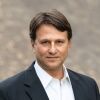Pakistani medical doctor Muhammad Masood was arrested at Minneapolis-St. Paul International Airport in March. |
During his two years working as a “research coordinator” on an H-1B visa for the Rochester, Minn., Mayo Clinic, Pakistani medical doctor Muhammad Masood allegedly saw himself as having gotten “behind enemy lines” where “not many people cant even reach here to attack.”
A federal criminal complaint almost lost in the nation’s Corona-19 virus crisis alleges that Masood planned from the day he arrived in America on his H-1B visa in February 2018 that he would use the rare access it afforded to learn something useful about his enemies so as to conduct violent jihad in line with his perceived religious duty. By January and February 2020, according to the complaint, the 28-year-old was messaging on an encrypted platform about how sick he had grown of smiling every day at the “passing kuffar,” a derogatory term for non-Muslims that often justifies execution. All the smiling was “just not to make them suspicios ... I cannot tolerate it anymore.”
Masood planned to conduct violent jihad from the day he arrived in America in 2018.
He messaged that he could not let his H-1B visa go to waste. “Sometimes I wantto attack enemy when I am behind enemy linea itself,” he messaged in January. "[I] wonder if I will miss the opportunity of attacking the enemy when I was in the middle of it.”
By the grace of an undercover FBI investigation, Masood will do no such thing. Agents arrested Masood on March 19. By then, he had changed the plan from attacking the local kuffars he hated so much to joining ISIS in northeast Iran and Afghanistan, or in Syria as a medic, or maybe engineering drones “and also fight.” It’s unclear why he changed his mind about attack on U.S. soil.
“You know [brother] ... there is so much I wanted to do here ... lon wulf stuff you know ... but I realized I should be on the ground helping brothers sisters kids inshAllah,” he said.
The Pakistan-licensed doctor was as deficient in operational security as he was in spelling English. The individuals on the other side of his encrypted communications were undercover informants for the FBI who kept asking if he was absolutely sure he really wanted to quit his Mayo job and join the ISIS fight overseas. “I want to kill and get killed ... and kill and get killed ... and again and again. This is what ... Allah wished,” he replied.
“I want to kill and get killed ... This is what ... Allah wished,” Masood told FBI informants.
He now stands charged with attempting to provide material support to a designated foreign terrorist organization, the crime usually used for those hoping to join ISIS. Masood went so far as to quit his Mayo job, auction off his personal belongings, and purchase an air ticket to Jordan. But Jordan closed its borders as part of its Covid-19 lockdown strategy, so Masood decided to catch a cargo ship out of Los Angeles. FBI agents busted him in the Minneapolis-St. Paul International Airport as he went through the TSA screening line.
The Masood case raises a number of issues that ought to be debated as matters of public policy and homeland security. For one, this case undermines criticism that President Trump’s “travel ban” wrongly blocked U.S. entry of doctors from Muslim-majority countries on the temporary work visas. As well, the case is cause for reassessing current security vetting protocols in countries not on the travel restriction list, to ensure that hot security threats are not imported among the doctors, engineers, and other skilled professionals who use the H-1B visa to leave countries of national security interest. And lastly, the American public, elected leaders, and security professionals should never assume that force fields of credibility immunize doctors from security investigations and thorough vetting. They don’t, as we well learned from Dr. Nidal Hassan’s massacre at Fort Hood, Texas, in 2009.
We should never assume that force fields of credibility immunize doctors from thorough vetting.
Masood would not obviously have stood out as someone who might get flagged on risk profiles for terrorism, even though he was born, raised, and educated in the country where Osama bin Laden found years of safe harbor until Navy Seals killed him in a clandestine raid. His LinkedIn profile shows that he earned a Bachelor of Medicine, Bachelor of Surgery from Riphah International University. He earned a General Certificate of Education from the University of Cambridge and held a license to practice from the Pakistan Medical and Dental Council.
Todd Bensman is a fellow at the Middle East Forum and a senior national security fellow for the Center for Immigration Studies. He previously led counterterrorism-related intelligence efforts for the Texas Intelligence and Counterterrorism Division.








